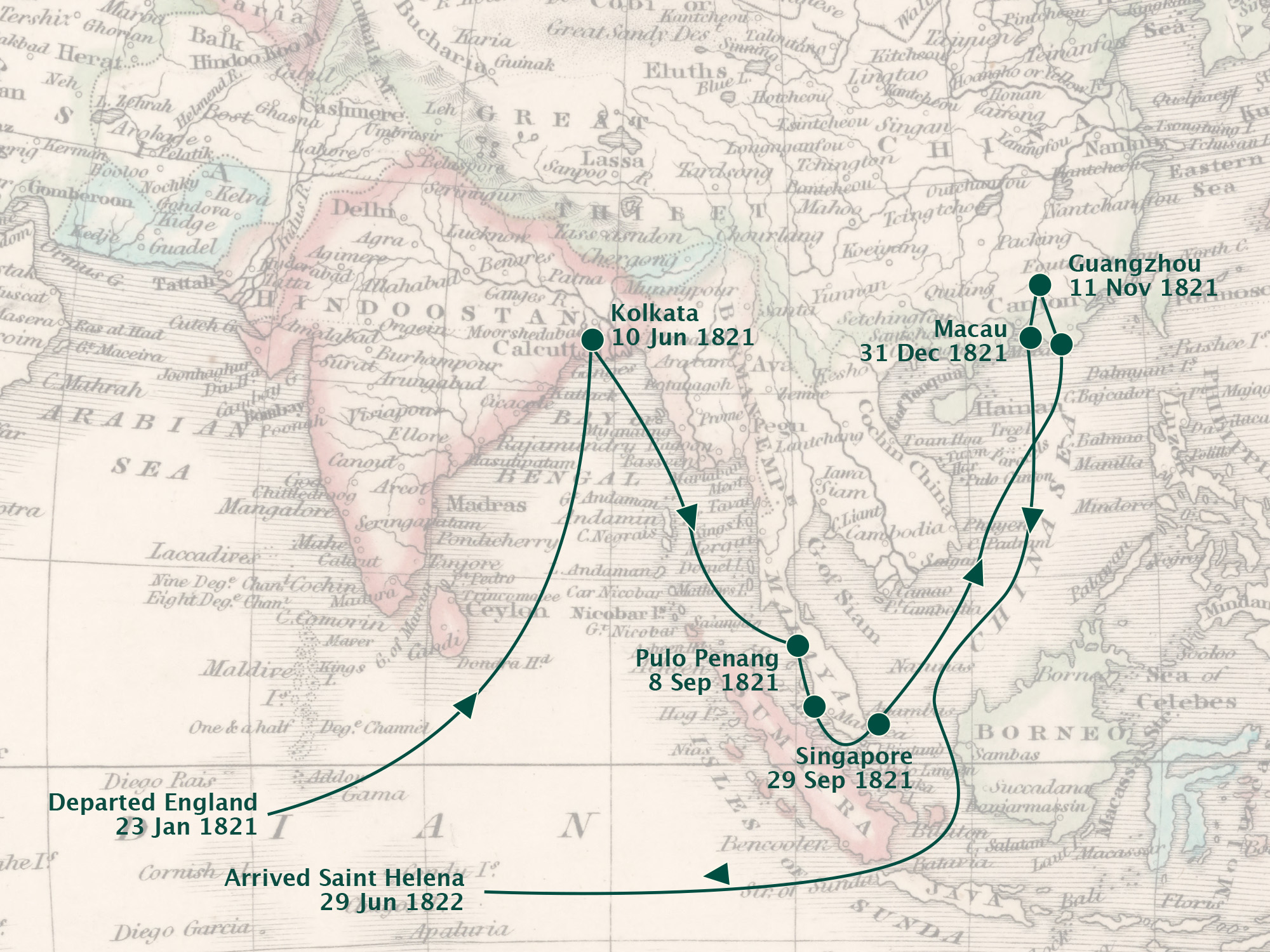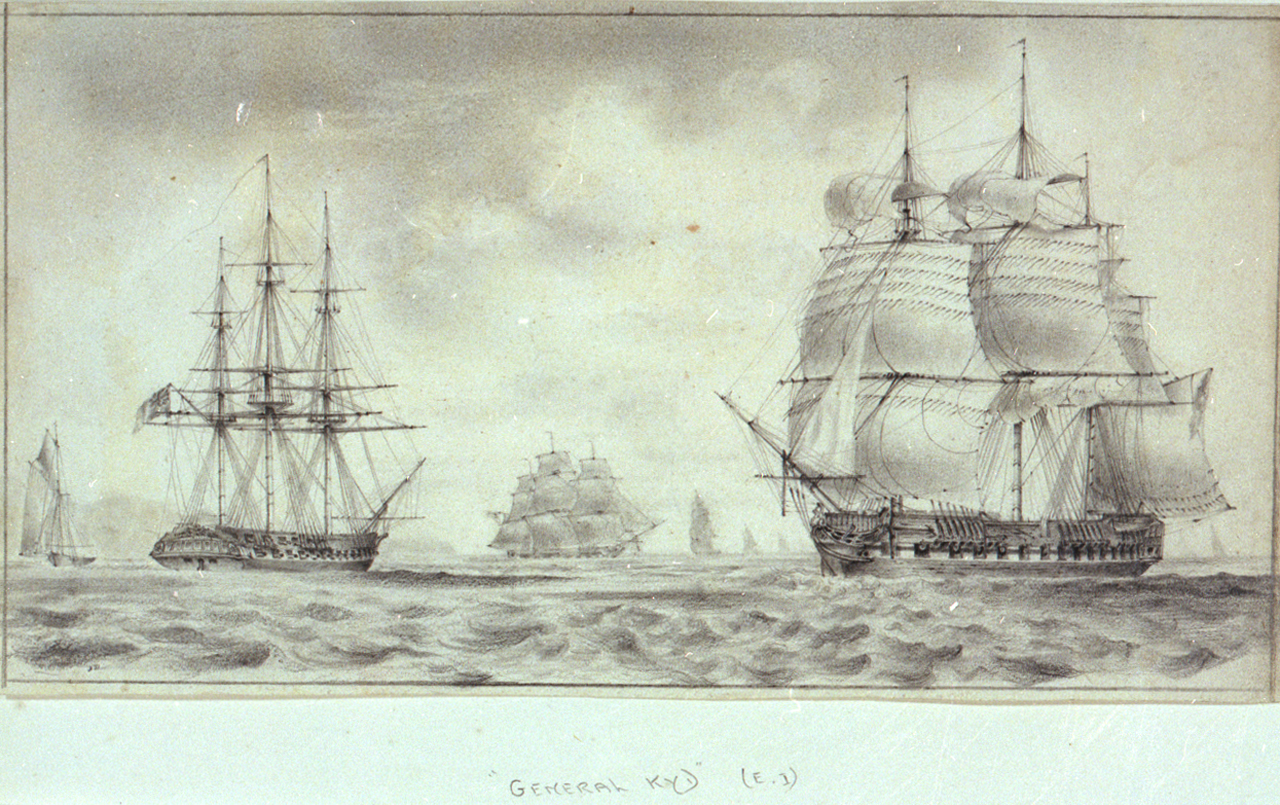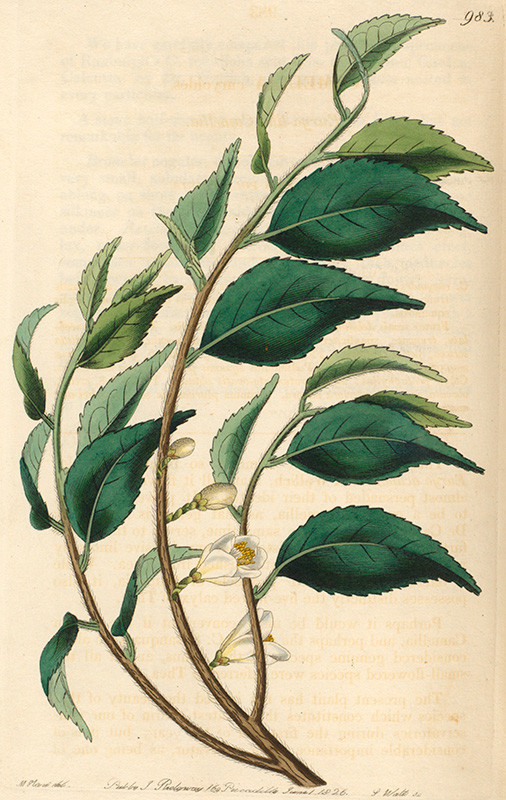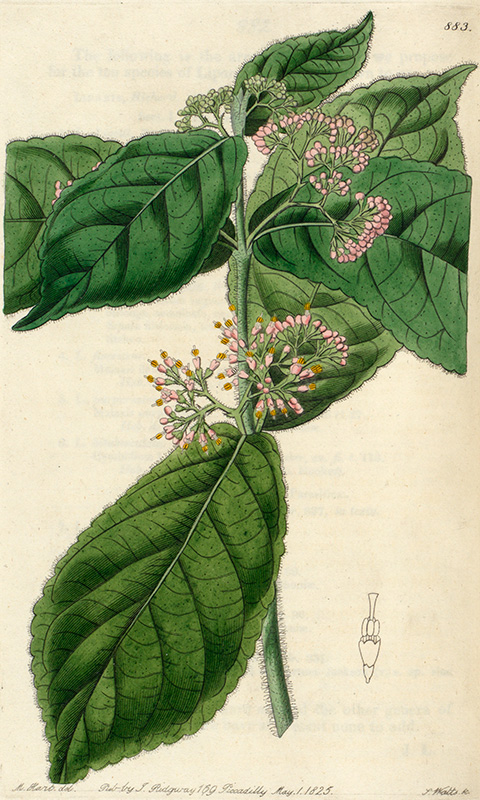Insights into our collections
RHS Plant Collector Archive: John Potts
John Potts was the Horticultural Society’s first plant collector. He travelled to southeast Asia in 1822.
Who was John Potts?
John Potts (?-1822) was the Royal Horticultural Society’s first plant collector. We know little about his early life. He was employed as a gardener in the Society’s first experimental garden in South Kensington, when the Society commissioned him to obtain plant specimens from India, Malaysia, Singapore, China and Saint Helena. Potts died in October 1822, just two months after returning from his trip, having suffered frequent bouts of ill-heath during the expedition.

Map of John Potts’ voyage. The place names are those used by Potts in his account.
Where did John Potts go to collect plants?
On 23 January 1821 Potts left England on the General Kyd, a ship belonging to the East India Company. first stop was India, where he arrived in June 1821. Here, he collected plants in and around Kolkata and Serampore. After stops at Malaysia and Singapore, Potts arrived off the coast of China on 22 October 1821. He spent several weeks collecting plants in China before departing from Macau on 31 December 1821. After a stop-off at Saint Helena, Potts returned to England in August 1822.

The H.C.S. General Kyd. © National Maritime Museum, Greenwich, London
How did John Potts collect plants?
Potts drew upon the support and expertise of a wide range of people in his work. At the time of his journey, movement of foreign nationals was restricted in China, so Potts was unable to leave Guangzhou and Macau. He was therefore limited to visiting local gardens, nurseries (especially the Fa Tee [Fangcun] nursery gardens in Guangzhou), marketplaces and other businesses including apothecaries. For trips further afield, Potts recruited local people with the relevant expertise to collect plants on his behalf, via his network of European contacts that included the English naturalist and art collector John Reeves, the Scottish naturalist and opium merchant Thomas Beale, and the East India Company surgeon and horticulturalist John Livingstone. Throughout his expedition, Potts would have drawn upon local horticultural knowledge and relied upon others to act as guides, translators and labourers, and to facilitate movement across regions where language and cultural knowledge were barriers, though he rarely mentions or names them in his account.
Plate 983. Camellia euryiodes Edwards’s Botanical Register vol.12 (1826)
What plants did John Potts collect?
Potts’s travel journals indicate that while in India he collected, amongst other things, fruits in jars, and ferns, and was given boxes of spices that included nutmeg and cloves. In China, Potts sent specimens of camellias, chrysanthemums, and azaleas back to England.
Plate 883. Callicarpa rubella, from Edwards’s Botanical Register vol.11 (1825)
What is in the John Potts papers at RHS Lindley Library?
Potts’s papers comprise two manuscript versions of his travel journal, and although the journals contain occasional references to correspondence and lists of plants, no other written material survives. Aside from the narrative of his travels, Potts also copied into his journal a text entitled ‘A treatise on Agriculture drawn up by Rajah Niter Jeet Singh, rajah of Ishkaree [Mitrajit Singh, maharaja of Tekari]’ (Potts himself having had little opportunity to observe agriculture in India firsthand), and his own observations on Chinese gardens.
This Insight draws upon research carried out by Dr Sarah Easterby-Smith and Dr Elena Romero-Passerin (University of St Andrews) in 2021-2022, commissioned by the RHS.
Discover more
Author
Library Team, RHS Lindley Library
Published
9 May 2025
Insight type
Short read

